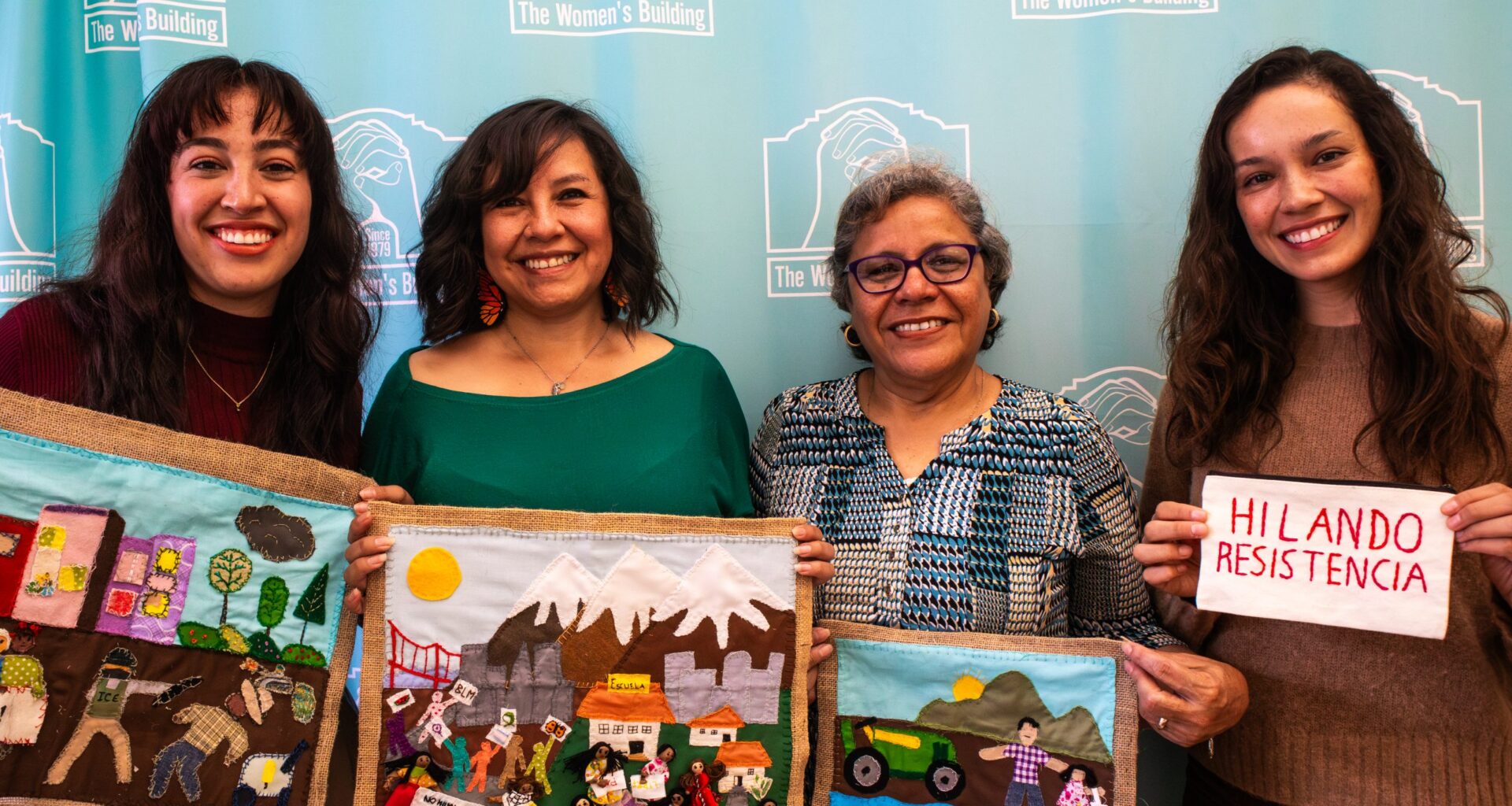Adilia De La Llana first arrived in the United States in 1987, but she could never quit her home country completely. When her husband passed away in 2020, De La Llana was living in Nicaragua again. Her son, who lived in the U.S., urged her to join him.
“For three months, I cried and cried,” De La Llana said in Spanish, her voice breaking. “I’d have to leave my home. Everything I had built over there.”
On a recent visit to The Women’s Building, a nonprofit in the Mission, De La Llana, showed off an embroidered image of her seven-year-old self and her father in the fields of Nicaragua. The piece is inspired, she said, by her land, and “the way it feels to long for it.”
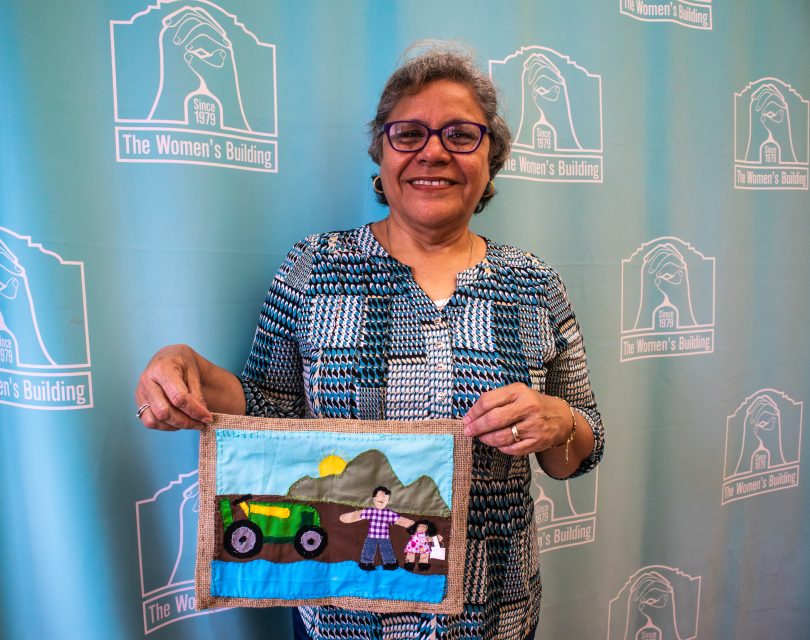 Adilia De La Llana proudly holds her arpillera, which depicts her seven-year-old self standing next to her father in the fields of Nicaragua. Photo by Mariana Garcia.
Adilia De La Llana proudly holds her arpillera, which depicts her seven-year-old self standing next to her father in the fields of Nicaragua. Photo by Mariana Garcia.
De La Llana’s work will be exhibited as part of Threading Resistance, an embroidery workshop and exhibition hosted by The Women’s Building. The exhibition will take place on Friday, Oct. 24 and offer food, wine, and live music by all-femme band, Corazon de Cedro.
Over the course of eight sessions, the eleven workshop participants learned how to create arpilleras, a colorful patchwork panel embroidered atop a burlap sack — a form of folk art that became a subversive tool of resistance for Chilean women in the 1970s, who used them to document the abuses of Pinochet’s dictatorship.
The workshop was created by Valentina Ocampo, an intern at The Women’s Building, who came up with the project as part of her thesis in Migration Studies at the University of San Francisco. Ocampo proposed the idea to her colleague Cinthia Carvajal, a Women’s Building board member, who joined Ocampo as co-creator and co-facilitator.
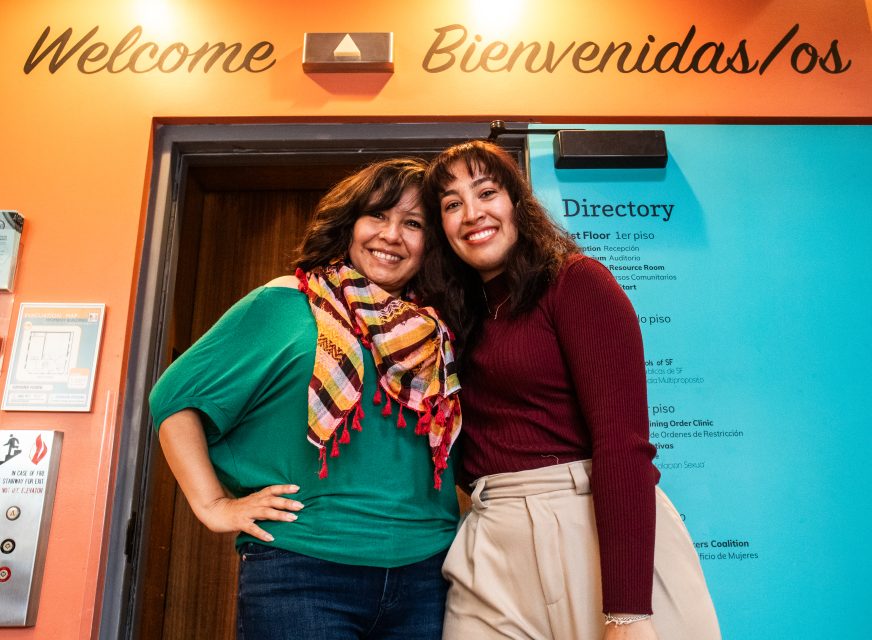 Cinthia Carvajal, left, and Valentina Ocampo, right, stand at the entrance of The Women’s Building. Photo by Mariana Garcia.
Cinthia Carvajal, left, and Valentina Ocampo, right, stand at the entrance of The Women’s Building. Photo by Mariana Garcia.
When De La Llana’s son encouraged her to participate in Threading Resistance, she was skeptical at first, but soon found comfort in attending the Friday night sessions. “Being here with them,” she motioned to Ocampo and Carvajal, “I’ve felt very supported. I feel like they’re part of my family.”
Ocampo considers herself a beginner as well. “Starting in May, I embroidered every night to learn how to do it well,” said Ocampo.
Not only did Ocampo and Carvajal lead each session, they also participated by creating arpilleras of their own. The women hail from Colombia and Bolivia, respectively, and used their experiences to promote collective healing through embroidery.
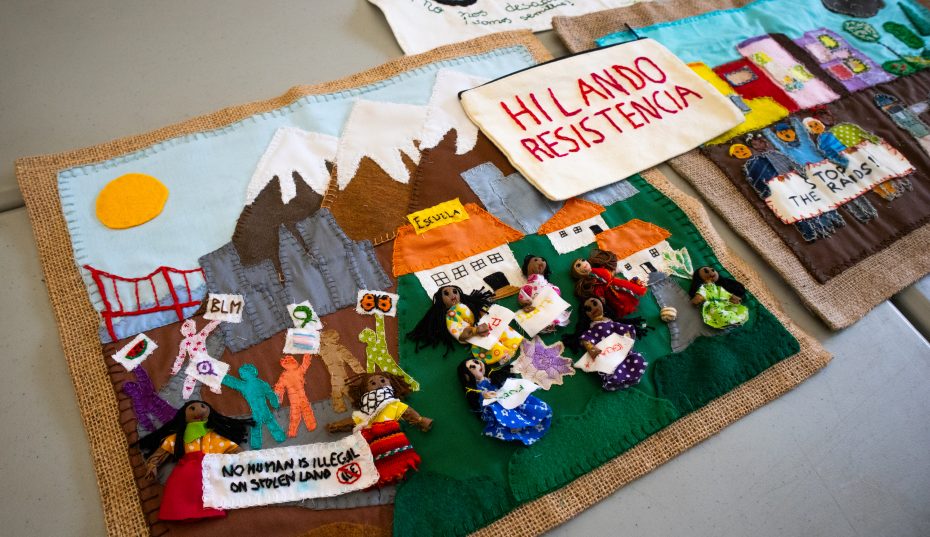 Ocampo’s arpillera combines scenes from her childhood in Bolivia, and symbols of her current life in San Francisco. Photo by Mariana Garcia.
Ocampo’s arpillera combines scenes from her childhood in Bolivia, and symbols of her current life in San Francisco. Photo by Mariana Garcia.
Carvajal’s arpillera featured images of her past in Bolivia, and present in San Francisco. She drew inspiration from her mother, a survivor of domestic violence who never completed her education. “It was destiny that I ended up in a country up north,” said Carvajal. In one way or another, I closed the cycle and came about creating this workshop with Valentina.”
Threading Resistance will showcase at the Women’s Building on Friday, Oct. 24 from 6:00 to 8:00 p.m. Attendance is free. Community members are encouraged to RSVP and bring donations of food and drinks to share.
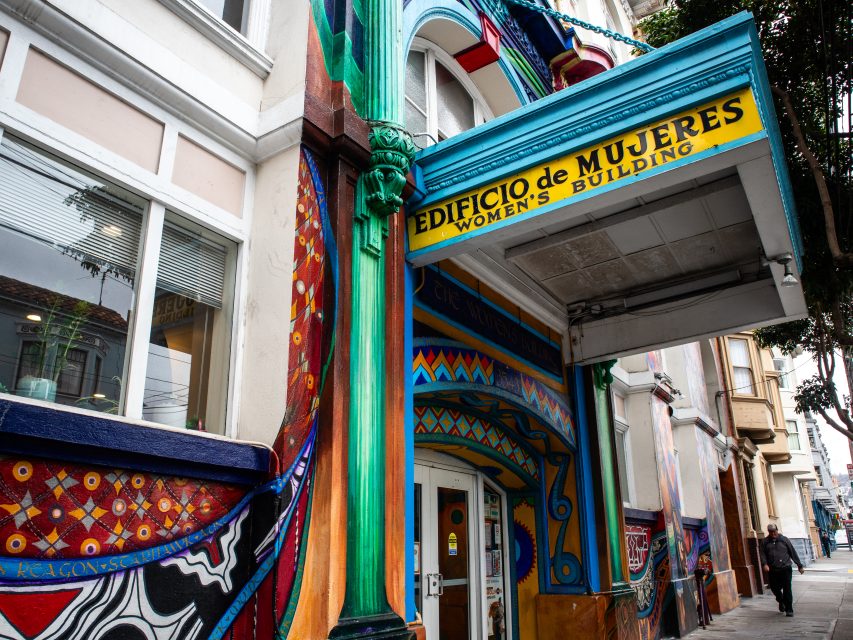 The exterior of The Women’s Building is covered in colorful murals. Photo by Mariana Garcia.
The exterior of The Women’s Building is covered in colorful murals. Photo by Mariana Garcia.

